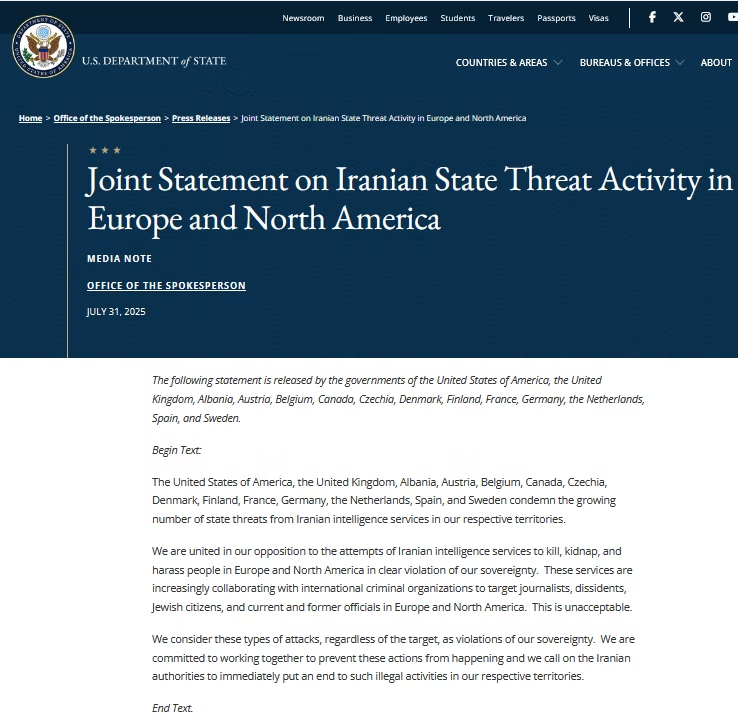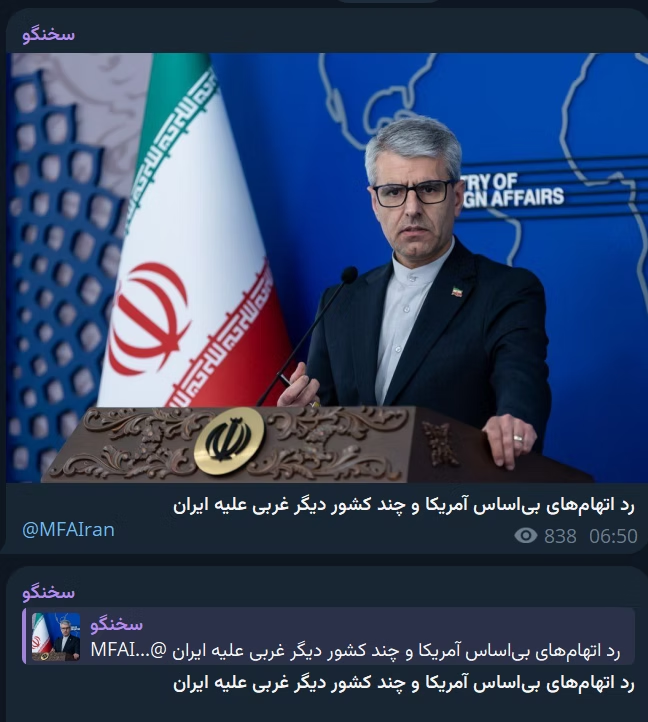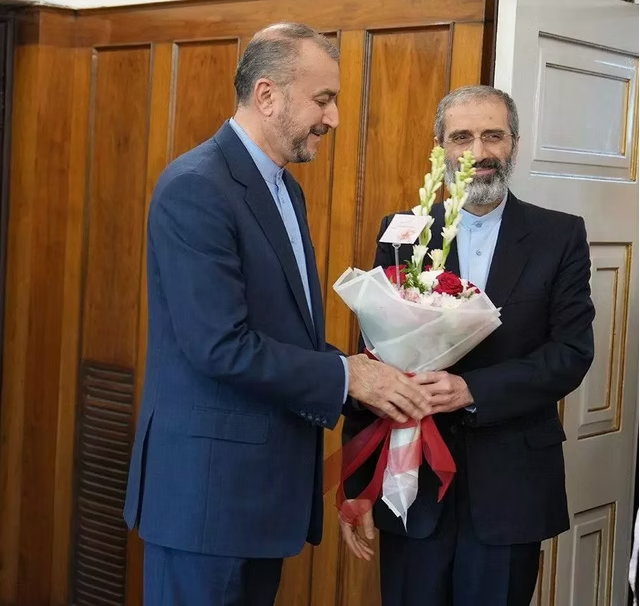Summary
On July 31, 2025, a coalition of Western nations strongly condemned Iran for escalating state-sponsored terrorism, highlighting several assassination attempts, kidnappings, and harassment campaigns conducted across Europe and North America. Despite these explicit accusations and ongoing diplomatic tensions, historical precedent suggests that Iran is unlikely to alter its aggressive policies towards dissidents abroad and dual-national detentions.
On July 31, 2025, a coalition of nations, including the United States, the United Kingdom, Canada, Albania, Austria, Belgium, the Czech Republic, Denmark, Finland, France, Germany, the Netherlands, Spain, and Sweden, issued a joint statement strongly condemning Iran’s increased state-sponsored terrorism across Europe and North America.
The coalition accused Iran of orchestrating assassination attempts, kidnappings, and harassment campaigns against dissidents, journalists, Jewish community members, and former or current government officials. They emphasized these actions as serious violations of their national security and sovereignty, demanding that Iran cease such operations immediately.

Terrorism Abroad….
Several specific incidents were referenced to support these accusations. In France, authorities successfully disrupted a carefully planned assassination attempt against a prominent Iranian dissident residing in Paris, implicating Iranian intelligence agents in the operation. In Canada, intelligence agencies uncovered and prevented a planned violent attack targeting a leading figure within the Jewish community in Toronto, which investigations linked directly to Iranian-backed operatives. In Belgium, security forces foiled a bombing plot against the Israeli embassy in Brussels, arresting several individuals who reportedly received direct instructions and funding from Iranian intelligence networks. Additionally, in the United Kingdom, a series of sophisticated cyberattacks were launched against Iranian dissidents, aimed at compromising their communications and personal security, further demonstrating Iranian involvement.
Furthermore, the coalition highlighted a notable case in the United States involving Masih Alinejad, an Iranian-American journalist and prominent women’s rights activist. In October 2024, an Iranian general, Ruhollah Bazghandi, was formally charged in the U.S. for orchestrating a plot to assassinate Alinejad. This event drew significant international condemnation and underscored Iran’s global campaign against perceived adversaries. Notably, this was not the first attempt on Alinejad’s life, as she had previously been targeted in a 2021 kidnapping plot that was also linked to Iranian operatives.
… and Detentions in Iran
The coalition highlighted the escalation of Iranian domestic detentions targeting foreign nationals and dual citizens. These detentions include a British-Iranian dual national, a German cyclist detained on allegations of spying, an Australian academic detained under unclear charges, a Swedish citizen held without transparent judicial proceedings, and several members of Jewish communities, notably two U.S.-Iranian citizens. The detentions are believed to be a response to internal tensions exacerbated by Iran’s recent war with Israel.
Iran quickly rejected these accusations, labeling them “baseless and ridiculous.” Iranian Foreign Ministry spokesperson Ismail Baghaei accused the West of diverting attention from what he described as “genocide in occupied Palestine,” and claimed that the allegations were part of a deliberate “Iranophobia campaign.”

Risk Assessment
Iran has previously leveraged detained foreign nationals as bargaining chips in international negotiations. One notable example occurred in May 2023, when Belgium released Assadollah Assadi, an Iranian diplomat convicted of plotting a bombing at a rally of Iranian dissidents in France, in exchange for Belgian aid worker Olivier Vandecasteele, who had been detained in Iran and sentenced to 40 years in prison on politically motivated charges. Assadi was publicly welcomed and met with the former Iranian president, Raissi, and Foreign Minister Hossein Amir-Abdollahian, in what many observers viewed as a symbolic reaffirmation of Tehran’s endorsement of his actions.
The exchange sparked criticism from European lawmakers and human rights groups, who argued that it reinforced Iran’s strategy of hostage diplomacy. One notable case involved the release of a European national in exchange for the freedom of an Iranian diplomat convicted in Europe for involvement in a foiled terrorist plot. These exchanges underscore Tehran’s strategy of arresting dual or foreign nationals under dubious charges to secure the release of its agents held abroad or to extract political and economic concessions.

Considering Iran’s past behavior and modus operandi and documented cases, it remains highly unlikely that Iran will modify its aggressive stance toward targeting dissidents abroad or using the detention of foreign and dual nationals as political leverage. Western nations’ historical approach, limited to targeted sanctions without broader punitive measures, has failed to alter Tehran’s strategy. Consequently, the continuation and possibly escalation of such hostile activities pose a persistent risk for Western nations, highlighting the need for reassessment of current policies and response strategies.
















